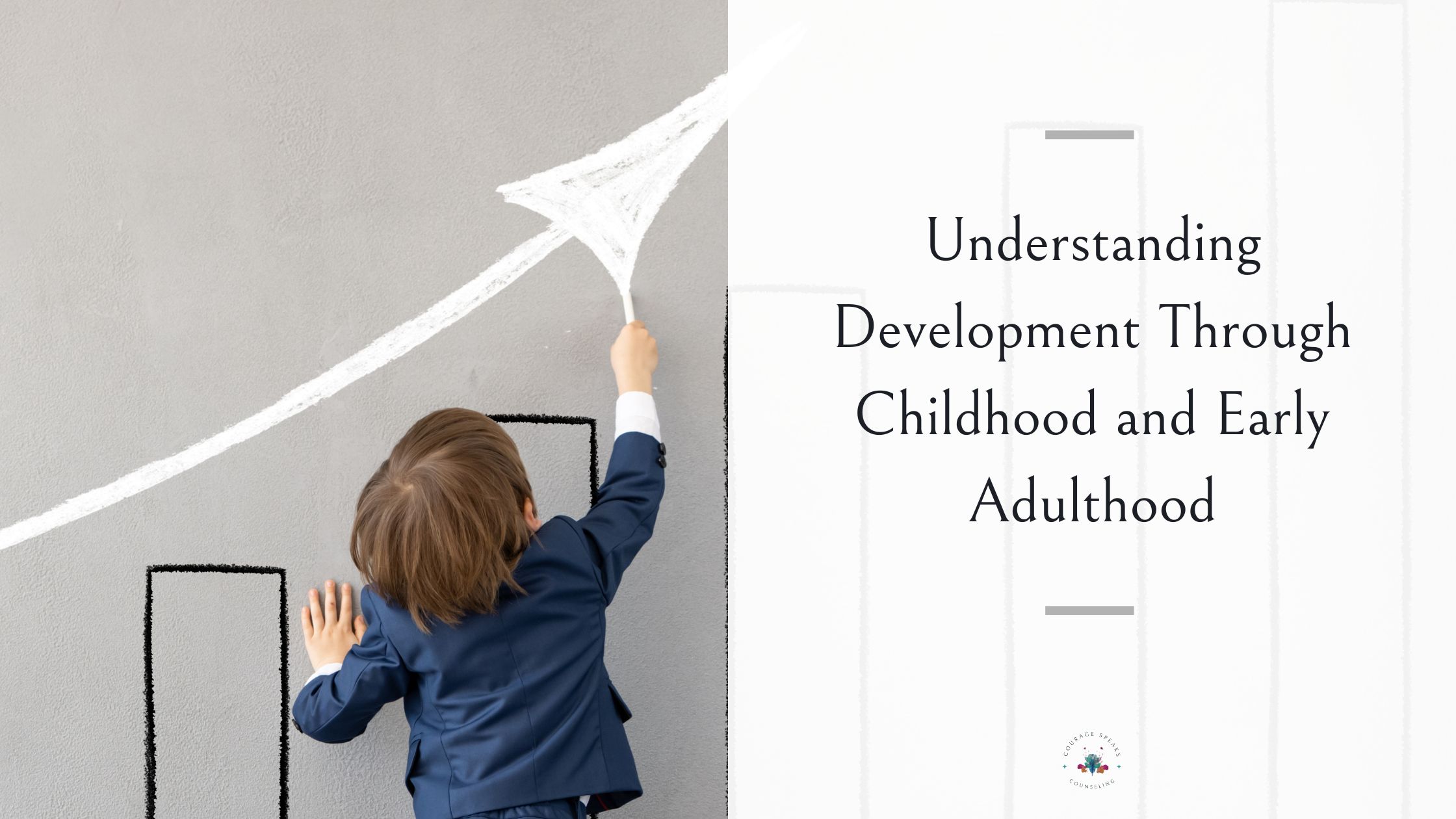Childhood and early adulthood are phases of profound transformation, not just in terms of physical growth, but emotionally and psychologically as well. The way we navigate these stages shapes the very core of who we are. It is essential to understand that these transitions involve more than just the milestones that are often measured—such as the first steps or high school graduation. These stages are also about how we connect with others, develop a sense of self, and establish patterns that will influence our relationships and personal growth for years to come.
The Foundation: Early Childhood
In early childhood, we begin to learn what it means to exist within a relational world. Our sense of safety and trust is built primarily through interactions with our caregivers. These early experiences lay the foundation for our ability to regulate emotions, form attachments, and feel secure in our bodies. This is where we start developing a fundamental sense of “I am safe” or “I am not safe” in the world around us.
When children experience consistent, nurturing care, they develop a deep-seated sense of security and a healthier attachment to others. If, however, those early years are filled with instability or neglect, children may develop patterns of hypervigilance or withdrawal, trying to protect themselves in ways that hinder their emotional growth. These early experiences influence not only how we view our caregivers but also how we perceive the world and our ability to trust others.
The Struggle for Independence: Middle Childhood
As children move into middle childhood, they begin to test their independence. This is the stage where curiosity explodes, and the child starts to define themselves as separate from their caregivers. The relationship dynamics shift from dependence to a more balanced interdependence. During this time, children develop their sense of agency—how much power they feel they have to shape their own world.
At this age, they learn through their interactions with peers and adults whether their unique selves are accepted and valued. Feelings of competence and achievement become increasingly important. However, the subtle internal messaging around worth can create patterns that either build confidence or erode it. Children who feel seen and affirmed are more likely to grow with a sense of self-worth and trust in their ability to handle challenges. In contrast, those who experience harsh criticism or neglect may develop insecurity or even a sense of shame.
Adolescence: Exploring Identity and Autonomy
Adolescence is often seen as a time of intense emotional upheaval, and for good reason. It’s a period when young people work to solidify their identities, and their need for autonomy intensifies. This period is filled with questioning, self-discovery, and a push toward independence. The way adolescents process their emotions, learn to set boundaries, and explore their place in the world depends largely on how secure they feel about themselves and their relationships.
It is also during adolescence that we begin to distinguish ourselves from our families, often taking on an internal struggle between remaining connected to family values and asserting individual identity. For some, this can feel like a rebellion; for others, it’s a more gradual exploration of new ideas and experiences. Regardless of the path, the deeper this exploration can go, the clearer our sense of self becomes. It’s about learning where we belong in the world and understanding what values we want to hold onto and which ones we might outgrow.
However, this process isn’t always smooth. Adolescents who were not able to develop a solid sense of self earlier in childhood may struggle more during these years, often feeling lost or uncertain about who they are. These struggles might show up as confusion in relationships, emotional reactivity, or the formation of unhealthy coping mechanisms.
Early Adulthood: Solidifying Identity and Relationships
By early adulthood, we’re tasked with refining our sense of self and learning how to integrate what we’ve learned in our earlier years. This is the time when we transition from dependence on caregivers to full independence, which includes not just physical independence but emotional and relational maturity. We begin to forge deeper connections with others—friends, romantic partners, and colleagues—and learn what it means to live authentically, balancing our individual needs with those of the people we love and work with.
This is also the period when we may begin to choose long-term goals for ourselves, whether in our careers, relationships, or personal lives. But, while the need for independence is strong, the desire for connection and acceptance remains central to our emotional experience. Those who have developed a secure sense of self in childhood may find that they have healthier relationships and feel more confident in the choices they make. But those who have unresolved wounds from earlier stages of life may find that they carry those patterns into their adult years, struggling with insecurity, isolation, or difficulty forming stable, healthy relationships.
The Path Forward
As we continue through life, the work of healing and growth doesn’t stop. Each of us has moments where we revisit old patterns, be it in relationships or in how we view ourselves. It is important to recognize that development is not a linear process but one filled with layers of complexity. The earlier stages of life shape how we relate to ourselves and others, and as we become aware of these patterns, we can begin to rewrite the script, creating more meaningful and authentic connections.
Ultimately, childhood and early adulthood are about laying the groundwork for who we are becoming. But we’re not static beings—we evolve, adapt, and have the capacity to heal and grow at any stage of life. It’s never too late to revisit those early developmental stages, to understand the wounds, and to integrate a fuller sense of self. By fostering awareness and compassion for ourselves, we create the space for healing and transformation, no matter where we are in life’s journey.
Embracing Shadows, Illuminating Hope,
Chelsey Fjeldheim, LCSW
Empowering Souls on the Path of Healing
Copyright © 2025 Chelsey Fjeldheim, Courage Speaks Counseling




